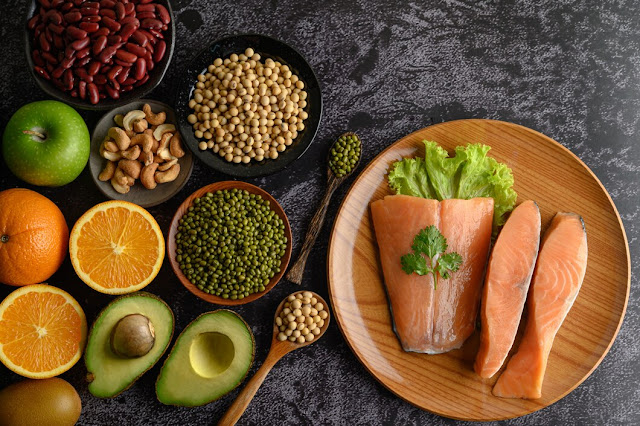The Health Benefits of Peanuts: A Nutritious and Delicious Snack
Peanuts, also known as groundnuts, are a popular snack enjoyed by people around the world. Not only are they tasty and versatile, but they also offer numerous health benefits. Packed with essential nutrients and healthy fats, peanuts can be a valuable addition to your diet. In this blog post, we will explore the various reasons "Are peanut good for you", shedding light on their nutritional value, potential health benefits, and practical tips on incorporating them into your daily routine.
Nutritional Value of Peanuts
Furthermore, peanuts are a great source of dietary fiber, which aids digestion, supports weight management, and helps maintain healthy blood sugar levels. They also contain an impressive range of essential vitamins and minerals, including vitamin E, niacin, folate, magnesium, and phosphorus.
Health Benefits of Peanuts:
1. Heart Health:
Consuming peanuts regularly can contribute to heart health due to their high monounsaturated fat content. These healthy fats help lower LDL (bad) cholesterol levels, reducing the risk of heart disease and stroke. Additionally, peanuts contain resveratrol, an antioxidant associated with a lower risk of cardiovascular disease.
2. Weight Management:
Contrary to common misconceptions, including moderate amounts of peanuts in your diet can support weight management efforts. The combination of protein, fiber, and healthy fats in peanuts helps increase satiety and reduce cravings, ultimately promoting a sense of fullness and preventing overeating.
3. Blood Sugar Control:
Peanuts have a low glycemic index, meaning they cause a slow and steady rise in blood sugar levels. This makes them an ideal snack for individuals with diabetes or those looking to regulate their blood sugar levels. The fiber and healthy fats in peanuts also contribute to better blood sugar control.
4. Nutrient Density:
Peanuts are a nutrient-dense food, meaning they provide a high amount of essential nutrients relative to their calorie content. By incorporating peanuts into your diet, you can increase your intake of important vitamins, minerals, and antioxidants without adding excessive calories.
5. Brain Health:
Peanuts contain several nutrients beneficial for brain health, including vitamin E, niacin, and folate. Vitamin E acts as an antioxidant, protecting the brain from oxidative stress and reducing the risk of cognitive decline. Niacin and folate play crucial roles in maintaining proper brain function and supporting mental well-being.
Tips for Including Peanuts in Your Diet
1. Snack on Peanuts: Enjoy a handful of peanuts as a satisfying snack between meals.
2. Peanut Butter: Spread natural peanut butter on whole-grain toast or use it as a dip for fruits and vegetables.
3. Peanut-Infused Dishes: Incorporate peanuts into your stir-fries, salads, or as a crunchy topping for yogurt and smoothie bowls.
4. Trail Mix: Create a nutritious trail mix by combining peanuts with dried fruits, whole-grain cereal, and dark chocolate.
5. Homemade Granola Bars: Add crushed peanuts to your homemade granola bar recipe for an extra dose of protein and crunch.
Conclusion:
Peanuts not only offer a delectable taste but also provide an array of impressive health benefits. With their abundance of essential nutrients, heart-healthy fats, and potential for weight management and blood sugar control, peanuts deserve a place in your daily diet.
By incorporating peanuts into your meals and snacks, you can enjoy their nutritious goodness while satisfying your taste buds.
Whether you choose to snack on whole peanuts, indulge in peanut butter, or get creative with peanut-infused recipes, the versatility of peanuts makes it easy to incorporate them into a balanced and healthy eating plan.
So, embrace the goodness of peanuts and reap the rewards of this nutritious and delicious snack. Your body and taste buds will thank you!



Comments
Post a Comment